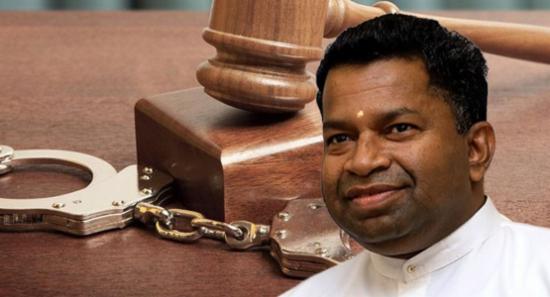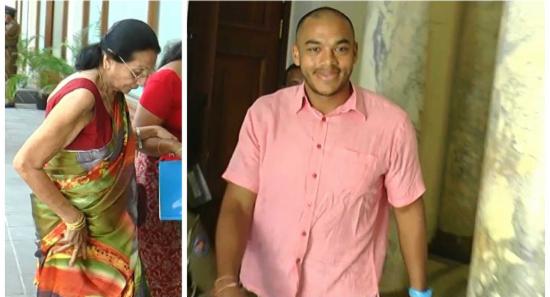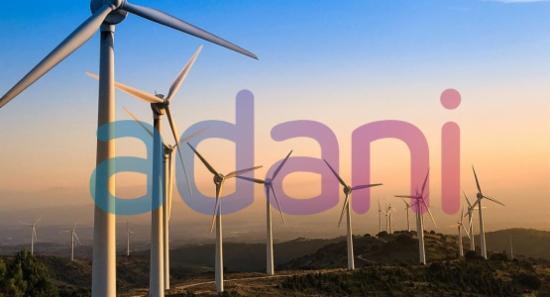.webp)
-787574.jpg)
World Journalists Conference 2025: Navigating Journalism in the Age of AI and Climate Change
COLOMBO (News 1st): Journalism has long stood as a cornerstone of democratic societies, serving as both a mirror and a watchdog. In an era marked by rapid technological advancements and pressing global challenges, the role of journalists becomes ever more pivotal.
Organized by the prestigious Journalists Association of Korea, the World Journalists Conference 2025 (WJC 2025), held from March 31 to April 4 across Seoul and other major cities in South Korea, brought together Journalists from over 50 countries to deliberate on the evolving landscape of journalism.

A Word About The Journalists Association of Korea: A Pillar of Press Freedom
Established on August 17, 1964, the Journalists Association of Korea (JAK) emerged as a unified response against the Press Ethics Commission Law, which sought to institutionalize governmental interference in the media. Over the decades, JAK has grown into South Korea’s largest organization of professional journalists, boasting a membership exceeding 12,000 individuals from 209 media outlets spanning newspapers, broadcasting, telecommunications, and digital platforms. As it approaches its 61st anniversary, JAK continues to champion press freedom, uphold journalistic ethics, and foster international collaboration among media professionals.

Conference 1: Shaping the Future of Journalism in the AI Media Era; Copyrights and Ethical Challenges
The inaugural session of WJC 2025, held at the Korea Press Institute in Seoul, centered on the theme “Shaping the Future of Journalism in the AI Media Era: Copyright and Ethical Challenges.” Moderated by Lee Joo Hee, Managing Editor of The Korea Herald, the session featured insights from Yin Cao (China Daily, China), Hwang Seok-ha (Busan Daily News, Korea), Natalia Szewczak (Business Insider Poland, Poland), and Diana Fuentes (Investigative Reporters and Editors, USA).
Yin Cao: The Role of AI in Journalism; Balancing Efficiency and Integrity in the AI Era
Yin Cao highlighted the transformative impact of AI tools like ChatGPT and Deepseek in streamlining journalistic tasks such as drafting, content personalization, and multimedia generation. She emphasized the efficiency gains AI offers, including rapid transcription of interviews and headline suggestions. However, she cautioned against potential pitfalls:
•Misinformation: AI’s capacity to generate content can inadvertently spread false information if not properly vetted.
•Copyright Infringement: The use of data scraped from the internet without appropriate permissions raises legal and ethical concerns.
•Privacy Violations: Instances of voice cloning without consent underscore the need for stringent privacy safeguards.
•Deepfakes and Fraud: The potential misuse of AI to deceive the public poses threats to trust and democratic processes.
To mitigate these risks, Cao advocated for clear newsroom policies on AI usage, transparency regarding AI-generated content, robust regulations to protect creators’ rights, and ongoing education on AI governance. She concluded, “Journalists who fail to adapt and critically engage with AI tools risk obsolescence. Embracing AI sensibly can enhance our craft and reaffirm our value.”

Hwang Seok-ha: Journalism in the AI Era; The Intersection of Efficiency, Ethics & Copyright
Drawing from his experience covering baseball, Hwang Seok-ha discussed leveraging AI for data analysis in sports reporting. Confronted with complex player statistics predominantly in English abbreviations, he utilized ChatGPT to interpret and analyze the data. While acknowledging AI’s utility in handling numerical data, Hwang warned against overreliance, citing instances where AI-generated content contained inaccuracies—a phenomenon known as “hallucination.” He stressed the necessity of fact-checking AI outputs against verified sources to maintain journalistic integrity.
Referencing Gannett’s policies, Hwang emphasized the importance of transparency, accuracy, fairness, and accountability when incorporating AI into journalism.
He asserted that journalists bear the ultimate responsibility for AI-assisted reporting and must promptly correct any errors to uphold credibility.
He concluded, “Without clear legal safeguards, there is a high risk of jeopardizing the sustainability of journalism. Therefore, it is crucial to establish institutional frameworks that ensure fair compensation when AI trains on and utilizes news articles."

Diana Fuentes: The New Life of AI in the 21st Century
Diana Fuentes highlighted AI’s potential to enhance investigative journalism. She cited The New York Times’ use of AI to condense over 500 hours of election misinformation recordings into five hours of analyzable content, demonstrating AI’s capacity to streamline data processing.
Fuentes underscored the importance of transparency in AI usage, advocating for clear disclosures to maintain public trust.
“Trust and credibility are difficult to earn. Unfortunately, it is all too easy to lose,” she said adding to it “Knowledge is power. We should be willing to share that power.”
Diana also highlighted the role of organizations like Investigative Reporters and Editors (IRE) in training journalists on the ethical use of AI. She praised their efforts to balance innovation with responsibility: “Humans need to be involved all along the way.”
She concluded with a call for unity and collaboration: “We need to use all available tools and work together on behalf of our communities.”

Opening Ceremony:
Following Conference 1, the official opening ceremony commenced with an address by JAK President Park Jong Hyun, who underscored the pressing issues of AI integration and climate change as challenges requiring collective action from the international press.

Congratulatory speeches were later delivered by National Assembly Speaker Woo Won Shik (Virtually) and Minister of Culture, Sports and Tourism Yu In Chon.


An official luncheon organized by the JAK at the National Press Club provided 65 Journalists from 52 Countries with an opportunity to network and reflect on the discussions.

Conference 2: The Role of Journalism in Confronting Climate Change
Resuming after the luncheon, Conference 2 focused on “The Role of Journalism in Confronting Climate Change and Environmental Shifts.” Moderated by Park Sang Wook of JTBC Korea, the panel featured Murray Webster (CBC, Canada), Tsegahun Asefa Shimekit (NBC Ethiopia TV), Gianmarco Volpe (Agenzia Nova, Italy), and Yun Ji Ro (Next Group, Korea).

Murray Webster: Reframing Climate Reporting
Murray Webster, a Senior Defence and Foreign Policy Correspondent representing CBC, Canada urged journalists to reframe climate change narratives by highlighting its implications for national security.
Webster emphasized that climate change is a driver of geopolitics, citing its links to natural disasters, refugee flows, and conflicts over resources:
“Climate change is becoming a driver of geopolitics – whether it is the melting of polar ice cap in the Arctic; raging wildfires in the North – or more recently California; natural disasters; droughts and food insecurity that lead to mass migration.”
Webster further referenced the 2008 US National Security Assessment and 2015 White House Strategy, both of which warned of the security implications of climate change—warnings that are now playing out globally.
He added in his speech on NATO’s and the EU’s late but growing recognition of climate as a security threat and pointed to the Arctic’s rising strategic importance.
He concluded, “We live in perilous times – environmentally and now geopolitically. Climate change is spoken about in apocalyptic and existential terms. The apocalypse may be upon us. Although, it may not look entirely like what we have been predicting for the last 20 years.”

End of the Main Conference:
Following the insightful panel discussions, both Conference 1 and Conference 2 at the World Journalists Conference 2025 (WJC 2025) featured engaging Q&A sessions.



After Conference 2, attendees were treated to a special lecture by Pohang City Mayor, Lee Kang Deok. He detailed Pohang’s ambitious “Greenway Project,” initiated in 2016, aimed at transforming the city from a steel industry hub into a sustainable, green urban center. The project encompasses Pohang’s commitment to environmental sustainability.

The conference concluded with a musical evening featuring South Korean baritone, Claudio Jung.

The World Journalists Conference 2025 not only facilitated critical discussions on the evolving landscape of journalism and pressing global issues but also celebrated cultural diversity and sustainable initiatives.
While the main conference of the World Journalists Conference 2025 (WJC 2025) concluded in Seoul, the event’s agenda extended beyond the capital, offering participants immersive experiences across South Korea.
Participants had the opportunity of visiting several major cities, including Jeju Island, Suwon, Anseong, Songdo, and Incheon, each providing unique insights into the nation’s cultural heritage and advancements.



















Other Articles
Featured News





.png )

-787602_550x300.jpg)






-785316_550x300.jpg)



















.gif)